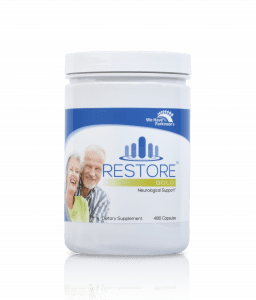Can Low-Fat Dairy Contribute to Parkinson’s Disease?
At least one million Americans live with Parkinson’s disease and new research suggests that low fat dairy products could contribute to that number. While cutting calories with non-fat yogurt, low-fat cheese, and skim milk may seem like a good idea to drop a few pounds, it may actually increase your chance of getting the neuromuscular disease.
Uric acid is a natural product in your blood. It’s a chemical created when the body breaks down substances called purines including liver, anchovies, dried beans or peas, and beer. The higher your uric acid levels, the less likely you are to get Parkinson’s. The problem is, all milk products can lower your uric acid levels (along with pesticides, herbicides, fungicides, and even some cleaning products). While no correlation between full fat dairy and Parkinson’s has been found, consuming at least three servings of low-fat dairy per day is enough to increase the risk of Parkinson’s by 34 percent. This percentage goes up to 39 percent with the consumption of skim milk especially.
One of the most common differences between low fat and full fat dairy is the process milk must go through. Whole milk is naturally high in vitamin A and D along with many other nutrients. However, when the fat is separated out of the milk, most of the nutrients are taken with it due to being fat soluble; and because of this, Federal law mandates that most skim milk has to be fortified with vitamin A and sometimes vitamin D. Milk solids in the form of dried milk are also added since they contain proteins that help thicken the watery consistency of skim milk.
Low-fat dairy products should be avoided as the process of fat separation significantly impairs the nutritional value of dairy by destroying its enzymes, vitamins, proteins, and by promoting dangerous pathogens. Previous research has also suggested that traces of pesticides in dairy products might be involved in affecting the risk of Parkinson’s.
“It’s really important to point out that the risk of developing Parkinson’s was still very low (around 1 in 100), even in those who consumed lots of dairy, so there is no reason for people to make changes to their diet based on this research,” said Claire Bale, head of research at Parkinson’s UK.
More research is needed before any verdict on dairy consumption can be made, researchers said, but the results did show “evidence of a moderate increased risk,” according to Hughes, the co-author.
These results might not necessarily demonstrate that dairy products cause Parkinson’s, as only an association has been found. The overall conclusion is that frequent consumption of low fat dairy products was associated with a modest increased risk of Parkinson’s disease.
Journal Reference:
- Katherine C. Hughes, Xiang Gao, Iris Y. Kim, Molin Wang, Marc G. Weisskopf, Michael A. Schwarzschild, Alberto Ascherio. Intake of dairy foods and risk of Parkinson disease. Neurology, 2017; 10.1212/WNL.0000000000004057 DOI: 10.1212/WNL.0000000000004057

Restore Gold™ is Changing Lives

Verified Reviews | Video Reviews | Order Today












